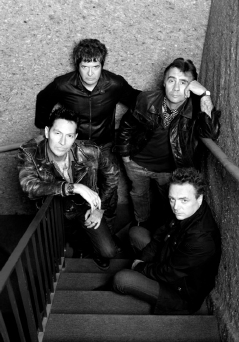 James Stevenson (lower right) was the guitarist for the U.K. punk band Chelsea. Later, for a short time he joined Generation X with Billy Idol. He spent a longer time with goth rockers Gene Loves Jezebel, and has also played in The Alarm and The Cult.
James Stevenson (lower right) was the guitarist for the U.K. punk band Chelsea. Later, for a short time he joined Generation X with Billy Idol. He spent a longer time with goth rockers Gene Loves Jezebel, and has also played in The Alarm and The Cult.
Glen Matlock (upper right) was the original bass player for the seminal and hugely influential punk rock back the Sex Pistols. Their album Never Mind the Bollocks is widely viewed as one of the most important in the history of rock music, punk or otherwise. Matlock co-wrote nearly all of the songs on this album, including “Anarchy in the U.K.” and “God Save the Queen”, but he didn’t play on it because he had left the group. He later played in Rich Kids, and with Iggy Pop and the re-formed Faces.
Stevenson and Matlock are part of The International Swingers, which also has Clem Burke (upper left) from Blondie on drums and Gary Twinn (lower left) on vocals. The following interviews were for a preview article for their 6/26/12 show at Whiskey Richards in Santa Barbara. This interview took place on 6/23/12, and was done by phone.
(Robert Matheu photo)
Jeff Moehlis: What can we look forward to at the upcoming show?
James Stevenson: As Glen says, we’re basically a covers band, but we cover all our own songs. We do a set of the greatest hits of all the bands we’ve ever been in. Then we’ve been trying to work on some original material, so we’ve got four original songs that we do, and then a couple of other songs we do that we just all love, that we just do for fun. Our first show was here in L.A. last night, and we’re playing again here tonight. It’s a fun band. We all respect each other as players. We’ve all been doing it for quite a long time.
JM Can you tell me a little bit about the rest of the band?
JS: Well, the bass player is Glen Matlock, who’s obviously the bass player from the Sex Pistols. He played with Iggy Pop, he was in a band called The Rich Kids. He played with The Faces. So, you know, he’s got a history. Then you’ve got Clem Burke, who’s the drummer from Blondie. He played with The Eurythmics, Bob Dylan, The Ramones. You know, he was Elvis Ramone for a while. Clem is one of the great drummers. The singer is a guy, a friend of mine called Gary Twinn, who was in a band called Supernaut. He was also in a band called Speedtwinn, and Twenty Flight Rockers.
JM And how did you come together? It sounds like you guys all knew each other.
JS: We all knew each other. I’ve been with Glen on and off. I played in his solo band, which is called The Philistines.
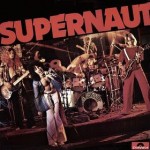
It was actually Gary. His band Supernaut had a huge hit record in Australia about 25 years ago [“I Like It Both Ways”, #1 in 1976 – sorry, that’s 35 years ago!], and he used to go over there with his band. The rest of them are Australian. His agent had thought that he should do something new, maybe you can get some friends together and come over with a different band. So he rang me, Clem, and Glen, and asked if we thought it was a good idea. So we came to L.A., rehearsed the set, and we just found that we really enjoyed playing together. So the first gigs we did were out there in Australia in December. The problem is that Glen and I both live in London, so it’s a bit of a logistical problem.
I think that last night was actually only the seventh show that we’ve ever done. The show in Santa Barbara will probably only be the tenth show that we’ve ever done. We’re talking about doing an album, and take it a bit more seriously because we’re enjoying it.
JM Cool. We’re glad you’re somehow ending up in Santa Barbara.
JS: Yeah, well it’s our agent. We were in San Francisco, and he wanted to route us back down the coast. Santa Barbara’s beautiful, so it’ll be great to be there.
JM You all have quite a history with the bands that you’ve been in in the past. I’m curious, going way back, how did you come to join the band Chelsea?
JS: [laughs] You know what? I was still at school. I was like 17 years old when the punk thing happened in London, and I just knew I wanted to be a part of it. I used to go to a lot of the gigs. I used to go to The Roxy when I was very young. I wanted to join a band, and there was an advert in a paper called The Melody Maker, and it just said “Punk Rock Group. Want Guitarist”. And I just replied to the ad and got the gig. I mean, that was a massive life changing thing for me, because when Gene October, the singer, said to me “You’re in”, I was like, OK, I’m not going to college or doing any of that. I’m going to be playing rock and roll for the rest of my life.
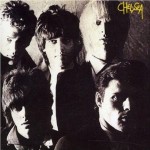
JM The band Chelsea released various singles during the height of punk rock. But the first album didn’t come out until several years later. I’m curious what happened?
JS: You know, I don’t want to blame anyone, but it was Miles Copeland’s fault. We were recording together. You know, “Right To Work” was the first single to come out in ’77. It was one of the better known punk rock singles at the time, and we wanted to get in and make an album. But I honestly think Miles… well, first of all, he was really concentrated on The Police at that time. Sting had started writing songs. I think Miles had very limited resources. And even though he ran a label, I don’t think he had enough money to put all the bands in the studio at the same time. He had to put one in and hope that they sell some records so that he had some cash coming in and then he could put the next band in. I mean, The Police did a whole tour opening for us in 1977. Our album came out a couple of years too late, which is a shame, you know.
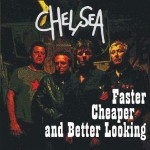
But we actually got together – I left the band in 1980 when I joined Generation X – but we put the band back together in 2000 to do some shows, and then we recorded a new album about five years ago, I think the best record we ever made. It’s called Faster, Cheaper, and Better Looking. There’s a label in Southern California called TKO Records that put it out.
JM Any good stories from the early tours, or anything that you’re willing to share?
JS: One of the funniest things that I ever did, I remember actually going in to Miles Copeland – he managed, The Police, Chelsea, and Squeeze, and we were like his biggest band – and I said to Miles, “I really need some money for a new amp.” And he was like, “Aaah”. I said, “Look, you’re spending all this money on Squeeze and The Police. Squeeze, there might be something if you’re lucky. But The Police? Be serious.” [laughs]
I’m actually writing a book called “25 Years in the Rock and Roll Wilderness”, and all of my stories are going to be in that.
JM You mentioned joining Gen X, and of course Billy Idol became huge here in the States. What was it like playing with him?
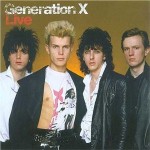
JS: I used to get on really well with Billy. He’s a very charismatic guy. It was obvious he was going to be a superstar one way or another. I mean, he kind of left the band high and dry. I joined the band right at the end. I only did like one British tour with them. We were rehearsing one day and Billy was meant to show up, and he just didn’t up. And the record company said he’s gone to New York to start a solo career. I remember Tony James, the bass player, turning around to me and saying “I’m really sorry, but you’ve joined a sinking ship.” So Billy went to New York, and as they say, the rest is history.
I really did enjoy working with him. He’s a nice guy. He’s a very bright guy. I was in the band for like six months right at the end. From Chelsea to suddenly going into that. I remember sitting in the band with Chelsea one day thinking – I was about twenty years old – you know what, I really should stop doing this for a few years and go to university. I actually left Chelsea and I applied for a place in university in England, and then I got this call from Tony James, so I ended up not going. That was another thing that changed my future.
JM Could you tell me about your time with Kim Wilde, including the song “Kids In America”?
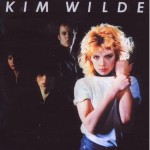
JS: I’m actually not on that record. I’m in the video and everything, but I’m not on the record. It was already recorded. Billy had just gone to New York, and a friend of mine said they needed a guitar player to be in this video for this hot new singer that my dad’s just signed. Do you want to be in the video? I thought, yeah, I’ll do that. I heard it, and literally three weeks later it was a hit everywhere in the world. I never played live with Kim. I was basically a professional mimer. We did all of these TV shows together.
That was when I was first friendly with Glen, and that’s when we put a band called Hot Club together. One of the reasons was that I was just fed up with just doing TV shows. I wanted to get back out on the road.
JM What advice would you give to an aspiring musician?
JS: It’s really difficult. My son started playing, and I even didn’t even want to encourage him to start playing professionally [laughs]. The thing to do, if you’re serious, is just to keep active. Keep playing. Always play for fun. It’s fine to try to make some money, but don’t do it for the money. Do it because you love playing. Sooner or later you’ll end up in a band you love. Even if you never make money at it, or you’re never really successful, just playing a musical instrument can be an antidote for so many experiences in life. If you’re depressed or lonely, you can pick up your instrument and play it, and it makes you feel better.
JM Do you want to set the record straight on anything about your music, your career, or the punk scene?
JS: I think one of the misconceptions is that none of the punk bands could play their instruments. Most of the people in punk bands, both in the America and in the U.K., were all actually all really good players. That’s kind of one misconception.
We think of The International Swingers as kind of a punk band, in a way. It’s just about getting up and having a go, playing, entertaining the audience, without thinking too hard about it.
JM You’ve played in many bands – Gene Loves Jezebel, The Alarm…
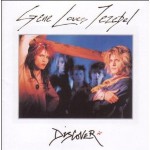
JS: Gene Loves Jezebel is a really sordid tale. Because there are two versions of the band. I don’t know if you know the history. There were two twin singers, and it was fabulous when I joined the band. It was a very, very interesting group musically. But they fell out really badly. In fact, I don’t think they’ll ever repair their relationship, which is tragic actually, because at the end of the day they are twins.
So I still play in Jay Aston’s version of the band, which actually has all of the original members. And then Michael has his own band in Los Angeles, which is a bunch of American guys. That’s kind of what happened. I still play in Jay’s version. We just did a festival in Brazil about three weeks ago.
JM The International Swingers sounds like a great time, but has there been one band that you’ve been most fond of playing with?
JS: Every band’s got its own kind of chemistry. I don’t regret anything I’ve ever done musically. Everything has its own kind of vibe and attitude, and chemistry. I’m always just happy to try anything new, you know?
JM Where am I reaching you guys at?
JS: I’m in Los Angeles. We played L.A. last night, and we play in the Valley tonight, then we play in San Francisco tomorrow. And then San Luis Obispo on Monday night and Santa Barbara on Tuesday night.
[Thanks, etc. James hands the phone off to Glen.]
JM What can we look forward to at the upcoming International Swingers show?
GM: It’s a good, fun night. The musicians – some of them [laughs] – are at the top of their ability, they’ve reached the top of their technical prowess. We’ve kind of knit really well as a band. We’ve all known each other in different incarnations. I played with James years ago, and on and off on different projects. He always comes and plays when I make a solo record. I’ve known Gary as a friend for a long time. And Clem was a friend for a long time – we actually had a project [Slinky Vagabond] a few years back with Earl Slick and a guy called Keanan Duffty. I just enjoy playing with them. See, everyone’s paths kind of crossed, and we knit, you know? A good band is about the chemistry, and having the whole be better than the sum of the parts. And we’ve got that.
Basically we’re a covers band, but we cover our own songs. I think we’re allowed to do that, you know?
JM Are there plans beyond this tour, maybe an album?
GM: As James said, [tonight] is the seventh gig we’ve done ever. We went to Australia last December, just before Christmas, and then we did a show or two over here about three months ago, and then we’ve got these shows.
Yeah, so what comes of it. You know, sometimes you do it and see what happens. People have begun to write some songs for this project a little bit. I mean, ultimately I think to be taken more seriously we’re going to have to be a more contemporary, new songs kind of band. But in the meantime, you know in the Pistols we started out doing covers, things that we kind of liked. And it gets you to where you want to be, because these are stepping stones, and they’re a little clue of the kinds of songs that we’d like to do. Songs from before are stepping stones for what you want to be doing, for your own songs.
You know, if something comes of it. But, every musician’s life is full of things that happen and things that don’t happen, and some really cool projects and some other projects. Until you’ve done it and seen it through, you really don’t know. But I do know one thing about this band. Some bands, everybody’s like “Oh, we need a record deal. You’ve got to love us because we’re great and we’re gonna change the world!” Well, not really. And that comes across. People are trying, they’re really desperate. But we’re not desperate. We’ve all done stuff of reasonable acclaim. We’re not resting on our laurels, but we’re relaxed. We don’t have to prove anything. So we’re gonna have fun. And that fun comes across – it’s a natural, organic kind of thing. Unless you’re having fun doing it, and actually do it for the love of it, there’s not much point, really. You can tell when it’s real and when it’s posed, and it’s certainly not posed for us.
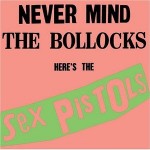
JM I know everyone asks you about the Sex Pistols, so I’ll try to keep my questions limited. But one question is, at the time did you have any idea how influential the Sex Pistols were or were going to be?
GM: Well, I never even thought past the end of the week, and I rarely do now anyway because I normally make plans and those kind of crumble. But we kind of knew we had something. Eventually we had time to rationalize it, and we stuck out like a sore thumb with what was going on at the time. I do think that the only way of doing anything is just by sticking to your guns, and sticking your head out. Luckily it worked. Lots of people rallied around us. Everybody was looking for change at the time. But, yes, it is surprising that people still go on about it.
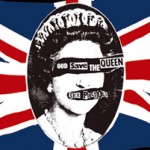
But I think one of the reasons they do, especially with the Pistols, is… I just came from England and the Queen’s 60th Jubilee was going on, and you’ve got the song “God Save The Queen”. The two things go in tandem. So we get free publicity every time the queen has something [laughs]. There you go. We never thought that one through, it just worked out that way.
JM There was the interview with Bill Grundy, which really elevated your profile.
GM: It did, yeah. It changed. We were already beginning to do alright as a rock band in England then. We used to have quite a strong weekly rock press. We had full newspapers: Sounds, Record Mirror, New Musical Express, Melody Maker. They all sold like a hundred thousand copies and came out every week. We’d been on the front page of most of those. But as soon as we’d done that TV show we were on the front page of all the national newspapers. That was a big different thing, and quite a lot to take on your shoulders as a young kid. I mean, it was a laugh, but it was also “what is the purpose” and all these questions being asked in Parliament about us. It was a trip.
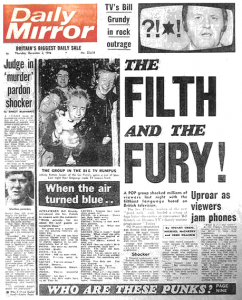
JM Well, they say that any publicity is good publicity, right?
GM: I don’t know if that’s quite true. But in that case it was good because there was so much dissatisfaction at the time, and all the young kids, when they saw us, although they might not have learned about punk music up until that point, when they saw us on the national TV program… I mean, punk bands were being formed the very next day. People were like, “Ah, that’s what we need to do!”
But I think the point to be made is that we were already up and running a good year or more before that show.
JM There are various rumors about why you left the Sex Pistols, either you quit or you were kicked out. What really happened?
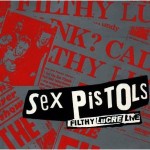
GM: What really happened, me and John were chalk and cheese. I thought he became quite arrogant and conceited once he got his face in the papers. My position became untenable. So I left. Not that it was a good move at the time. But no regretting anything. I’ve had quite a good, interesting life. I mean in ’96 when we did the Filthy Lucre tour and of all the bass players in the world they could have asked, they asked me to do it.
JM Not too long after that you ended up playing with Iggy Pop. I was just listening to the album Soldier that you played on.
GM: It’s not really produced properly, but there’s some good songs on that. It was a great time. I mean, the first time I ever came to America I was with Iggy Pop. The first time I was in New York was with Iggy Pop, and that was quite a cool thing to be doing. It was great. He’s a great guy. He’s a very astute person, as well, I think he’s one of the great living American poets, really.
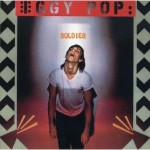
The thing was, all the things that I had done had been English, and always a bit half-baked. Iggy had been touring for years, and I couldn’t believe how professional he was. It was quite an eye opener.
JM I think it’s cool that you were recently playing with The Faces. Are there any future plans with them?
GM: I don’t know. They wanted Rod [Stewart] to do it, hoping he could step up to the mark. But we did it with Mick Hucknall, who was fantastic and he was in the same boat as me. He’s a great song singer. To me, The Faces with Rod Stewart were a great rock band, and with Hucknall it’s still a great rock band with a great song singer. Everybody would love Rod to do it, but that’s another matter. If they asked me, I’d love to do it.
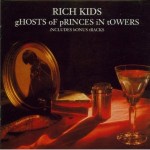
It was great being in the band. When Ronnie started playing those Faces songs again, you could hear him relearning how to play like Ronnie Wood. And it was great playing with Ian McLagen. I had a band after the Pistols and before Iggy Pop called Rich Kids, and he came down and played on the track, and he did a tour together and got on with each other. So I kept in touch with him over the years, and that’s how I basically got the gig.
JM What advice would you give to an aspiring musician?
GM: Try it like you mean it. Or don’t [laughs]. Even though I’ve had reasonable success, there’s a lot of frustration involved in the in-between periods. It’s not a smooth career path, but that’s kind of life.

Discussion
No comments for “Interview: James Stevenson and Glen Matlock”